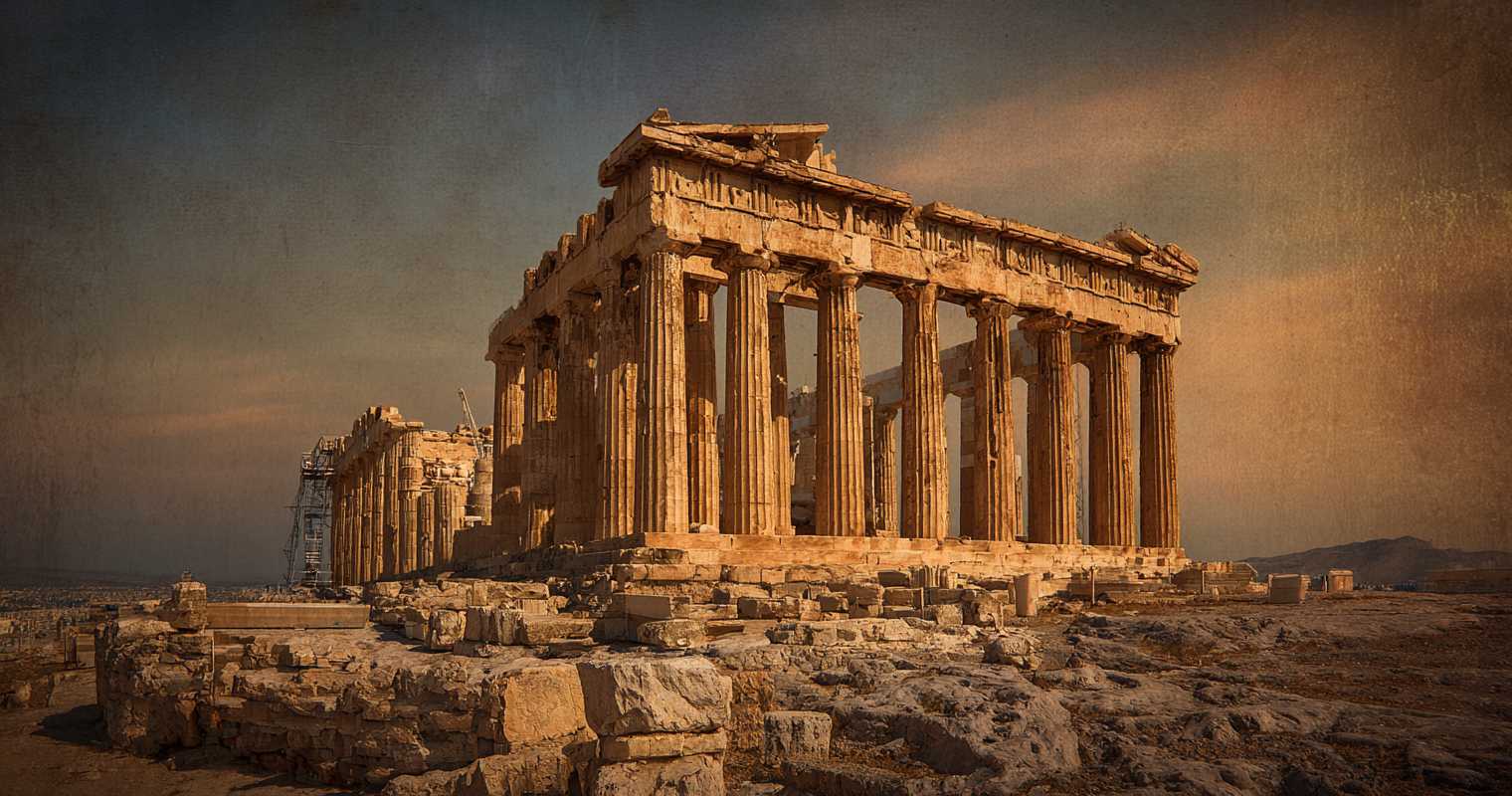
Awakening with the brilliance of philosophy and artistry, the Greek History Quiz reveals a world where culture shaped civilization itself and maybe even the world!. Ancient Greece fostered an environment where thinkers debated freely, architects designed marvels that still inspire, and storytellers spun tales that continue to define literature. Its bustling city-states encouraged curiosity and civic pride, blending individual achievement with shared purpose. The language of Homer, the sculpted perfection of classical art, and the vibrancy of public festivals intertwined into a society of lasting influence. Greece did not simply leave history; it carved an intellectual and creative legacy that continues to guide the modern world.
Philosophy thrived in Athens, where Socrates challenged norms, Plato envisioned ideals, and Aristotle systematized knowledge and we have you the quiz!. Their schools became foundations for modern reasoning, shaping education, politics, and ethics for centuries. Greek drama flourished under playwrights who transformed the stage into a place of emotional and intellectual exploration. Sculptors and artisans filled temples and public squares with art that celebrated form and meaning, uniting beauty with precision. Even today, their achievements remain not only historical but enduringly relevant, echoing across disciplines and cultures alike.
This Greek History Quiz celebrates the profound impact of a civilization that married knowledge with creativity. From the geometry of Euclid to the democratic debates in the Agora, every contribution strengthened the framework of global thought. The festivals of Olympia honored excellence and connected city-states through shared tradition and competition. Greece stands as a cultural beacon whose innovations transcend time, inviting admiration and study. Its history offers not just the past but a timeless mirror for human aspiration.
The Birthplace Of Philosophy And Learning
Athens became a hub of intellectual pursuit, nurturing schools where scholars questioned and refined humanity’s understanding of existence and reason. Knowledge became not only a pursuit but a way of life. This tradition of inquiry reshaped the foundations of education worldwide.
Libraries and academies emerged as centers of debate and exploration. Students gathered beneath marble columns to learn from masters whose teachings encouraged critical thought and logical rigor. Their influence still permeates the structure of modern universities.
Mathematics and science flourished alongside philosophy. The work of Greek thinkers formed principles that continue to inform architecture, technology, and scientific exploration. Their methods remain timeless guides for discovery.
Art, Architecture, And Cultural Brilliance
The Parthenon stands as a triumph of proportion and craftsmanship, its enduring presence a testament to Greek architectural mastery. Columns and friezes illustrated both artistic genius and technical skill, inspiring centuries of builders and designers.
Greek sculptors captured movement and emotion in marble. Their statues celebrated physical form while elevating ideals of balance, harmony, and precision. These works remain central in the study of classical beauty.
Festivals and public performances brought the arts to every citizen. Theaters echoed with powerful voices, while music and dance connected communities through shared cultural expression, creating a sense of identity and unity.
Legacy That Shaped The World
Democracy first emerged in Athens, empowering citizens with a voice in governance. This revolutionary system became the blueprint for political thought across continents and centuries.
Greek language and literature preserved a vast intellectual treasury. Epic poetry, history, and philosophy carried forward lessons that continue to enrich cultures far beyond the Mediterranean.
The Olympic Games united city-states in peaceful competition, celebrating human achievement and athletic excellence. These traditions evolved into a global movement that still honors the spirit of harmony and shared heritage.
7 Fun Facts About Greek History
- The ancient Greeks believed Mount Olympus was home to their deities and symbolic of their cultural ideals.
- Theater competitions during festivals featured plays judged by public officials and citizens.
- The Parthenon originally featured vibrant painted sculptures, not just bare marble.
- Greek symposiums combined feasting, conversation, and philosophical debate.
- Many Greek city-states minted their own distinctive coins, showcasing local artistry.
- Marble was transported from distant quarries with ingenious engineering methods.
- The original Olympic Games awarded olive wreaths as prizes for victory.
7 Serious Facts About Greek History
- Athens developed one of the earliest known systems of democracy.
- Greek philosophers established fundamental principles of logic and scientific inquiry.
- The architectural orders—Doric, Ionic, and Corinthian—became the basis for Western building design.
- Euclid’s work in geometry shaped mathematics for more than two millennia.
- The works of Homer formed the foundation of classical education for centuries.
- The Olympic Games began in 776 BCE and influenced modern sports culture.
- Greek city-states pioneered civic planning and public spaces central to community life.
Greek History – FAQ
Ancient Greece excelled in various fields, including the development of democracy, the creation of epic poems like the Iliad and the Odyssey, the invention of theater, and the construction of architectural marvels like the Parthenon.
Greek mythology was deeply ingrained in Greek society, influencing art, literature, and even political decisions. The myths provided explanations for natural phenomena, moral lessons, and a shared cultural identity among the Greeks.
The legacy of Greek history is profound, with its influence evident in modern democracy, philosophy, science, art, and language. The concepts and ideas developed by the ancient Greeks continue to shape contemporary society and thought.
